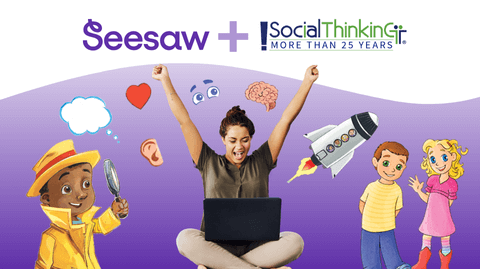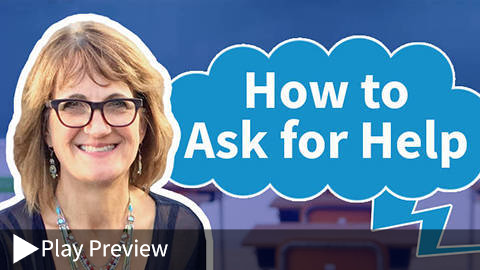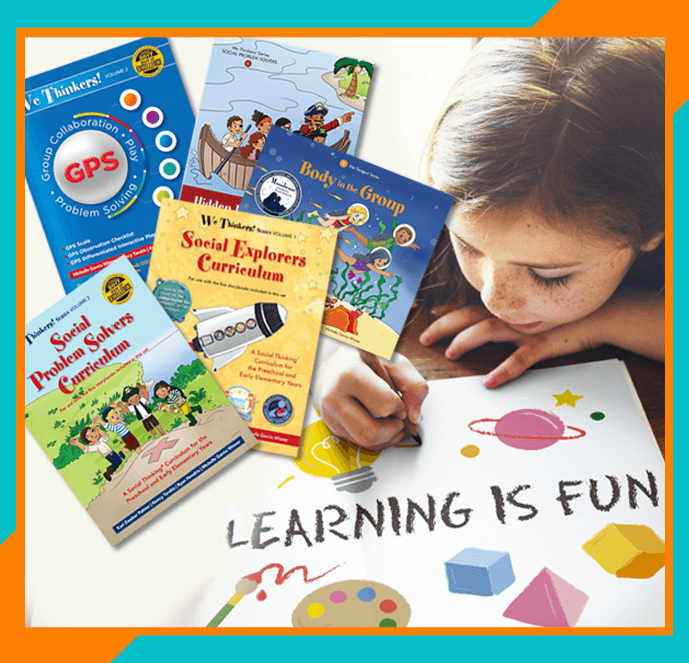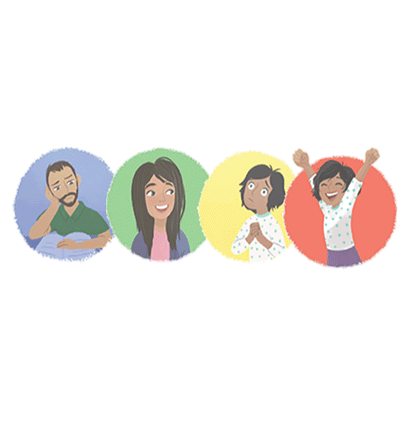Foster social and emotional awareness to develop foundational social competencies
Teaching Social Thinking Concepts & Vocabulary to Children Ages 4-7
Alarming statistics reveal that nationwide at least 250 children are suspended or expelled from preschool daily, three times the rate of expulsions in K-12 grades. Many of these children are melting down and labeled as disruptive, aggressive, or “behavior problems” because they don’t understand what’s going on around them or may not have awareness or understanding of how to play, learn, and work in groups with their peers.
Throughout our 25+ years of research, practice, and teaching, we’ve found that when children as young as four years old learn the mechanics of why and how we use our social minds to foster social and emotional awareness and self-monitoring—it helps them develop deeper insights and foundational social competencies that follow them throughout their lives. That’s why classrooms, schools, and hundreds of thousands of professionals and caregivers around the world are teaching our award-winning curricula and resources to their early learners.
Explore
- Free Webinars
- Best-Selling & Award-Winning Products
- On Demand Courses
CEs available for select professionals - Free Stuff for Home & School
- What is Social Thinking?
Free Webinars—Learn Essential Social Thinking Concepts for Free

Social Thinking Meets Seesaw
This joint webinar features three free lessons from the Social Thinking Methodology hosted on the Seesaw interactive learning platform. The 60-min webinar provides an overview of foundational lessons found in two Social Thinking curriculum series, You Are a Social Detective and the We Thinkers! Curriculum. Author Pamela Crooke and Social Thinking Founder Michelle Garcia Winner introduce attendees to the concepts and teaching in each lesson and Larissa Hsia-Wong, Lead Curriculum Developer for Seesaw, provides a demo of how the lessons come to life on their interactive platform. What better way to blend theory and teaching, and it’s free.
Explore 3 free lessons from the Social Thinking Methodology hosted on the Seesaw interactive learning platform.

How to Ask for Help
It’s human nature to want to help others, but it’s often difficult for people to ask for help, especially those with social, emotional, and academic learning differences. In this webinar, we’ll discuss why children, students, and adults may resist help or refuse to ask for it and we’ll deconstruct the multi-step process through which we ask for help. We’ll also explore the social emotional benefits for all participating in this unique and rewarding relationship.
Products to Support Self-Awareness, Perspective Taking, Social Problem Solving & Relationship Development
Award-Winning We Thinkers! Series
Foster Social Engagement & Build Social Thinking Vocabulary
Cultivate Healthy Emotional and Intellectual Development & Organized Thinking Skills
Bestselling & Award-Winning The Zones of Regulation Series
Empower Children to Manage Their Anxiety & Social Problem Solving
On Demand Courses—Practical Strategies You Can Use Right Now

Helping Early Learners Build Social Competencies
This strategy-filled course delves into crucial aspects of building social competencies in preschool and early elementary-age students (ages 4-7). Explore how flexible thinking, social language, self-regulation, and social and emotional development are vital for developing collaborative interactions in group settings, both on the playground and in the classroom. Gain insights from a research perspective on the impact of executive functioning, social attention, and social problem solving through the lens of our award-winning We Thinkers! curriculum series. Walk away with practical strategies and examples to seamlessly integrate social learning concepts into your existing teaching methods. The 90-day Recorded Replay Access begins at the time of Registration.
5.5 hours of training and CE credit available for select professionals.

Social Thinking: Building the Social Mind in Early Childhood
Parents and caregivers are always asking about how to teach and support self-regulation. In this course designed specifically for parents and caregivers, we’ll talk about the ways the social mind can support social thinking and self-regulation for early learners. We will cover practical strategies including how we can use stories, activities, and play to build self-regulation; how to teach children to better understand their own and others’ thoughts and feelings, and the plan of the group and their role within it. Please note: this course is not eligible for Continuing Education. The 90-day Recorded Replay Access begins at the time of Registration.
Please note: this course is not eligible for Continuing Education.
Free Stuff for Home & School
Free Articles
- Teaching an Essential Life Skill: How to Ask for Help
- What Is Shared Imagination & Why Is It So Important to Relationship Development?
- Using Social Thinking® Vocabulary with My OWN Child
- Teaching The Zones with Integrity
- Thinking Flexibly About We Thinkers! Volume 1: Overview and Q&A
- Are You Teaching Deeply, or Redirecting Behavior? Using the Social Thinking Vocabulary Terms Expected and Unexpected
- We Thinkers! Volume 1 Social Explorers and Braidy the StoryBraid Make a Great Pair!
- How the GPS Interactive Play Scale Relates to Classroom Participation
The Zones Free Stuff

Free Thinksheets

What is Social Thinking?
Strategies to Build Social Competencies
The Social Thinking Methodology provides evidence-based strategies to help people ages four through adult develop their social competencies, flexible thinking & social problem solving to meet their own social goals and improve:
- Conversation & social connection
- Executive functioning
- Friendship & relationship development
- Perspective taking
- Self-regulation
- Social Thinking Vocabulary